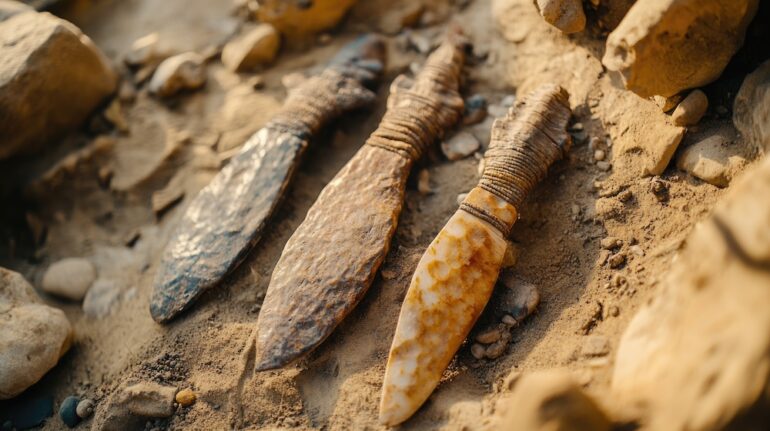What happens if you dig a flower bed or posthole and discover ancient artifacts such as pottery or a Native American weapon? Who does the find belong to? Will government officials descend on your property? Here’s what you need to know.
Ancient artifacts beneath our feet
American common law says it is yours to keep if you find a simple ancient artifact such as an arrow or tomahawk head on your property. You need not report it or give it to government officials or preservation societies. Simply preserve it and take a photo. However, if you discover a human skeleton or evidence of an ancient burial ground, you must contact local law enforcement. They will call a coroner and state antiquities officials if the remains are deemed to be ancient. If you own property with clear evidence of Native American burial mounds, you must leave them alone and not dig.
For much of the U.S., a homeowner is unlikely to find a significant site where an ancient civilization dwelt. However, some areas where human activity dates back centuries or millennia, such as the eastern United States or European and Middle Eastern lands, have laws requiring approval before excavation projects begin.
Regarding public lands, the National Historic Preservation Act and the Archaeological Resources Protection Act establish criteria for what is considered a historic site or an archaeological resource site, what should be done with artifacts found, and who owns them. For a site to be considered an Archaeological Resource Protection site, it must be at least a century old and a site of past human activity.
Protecting both relics and your rights
If you live in an area known for artifacts, it is a good idea to have an attorney draft a document stating that should a contractor or utility company uncover artifacts while working on your land, the items remain your property. Otherwise, the discoverer may lay claim to them. You must give the document to the contractor before work begins and specifically name the types of objects that may be found.
If you find evidence of a larger site, contact the relevant state agency for laws dealing with historical and archaeological sites. Preserve the integrity of the site until professional archaeologists arrive. Do not let other unqualified explorers dig there. The government will not necessarily restrict your use of your land, but relics of significant historical value may aid in scientific understanding of a past culture.
Related – Discovering and Preserving Your Home’s History


